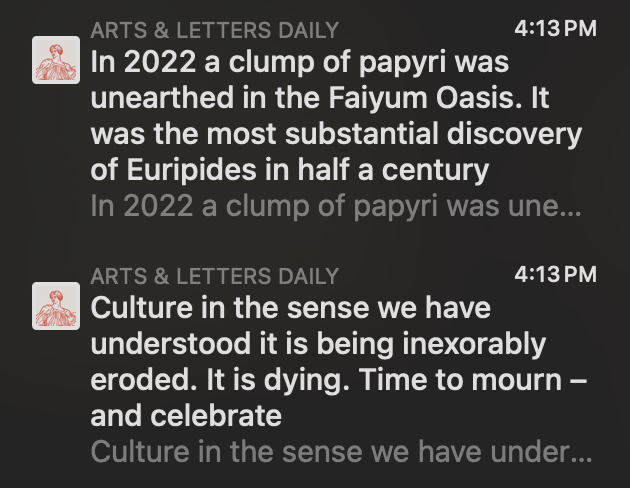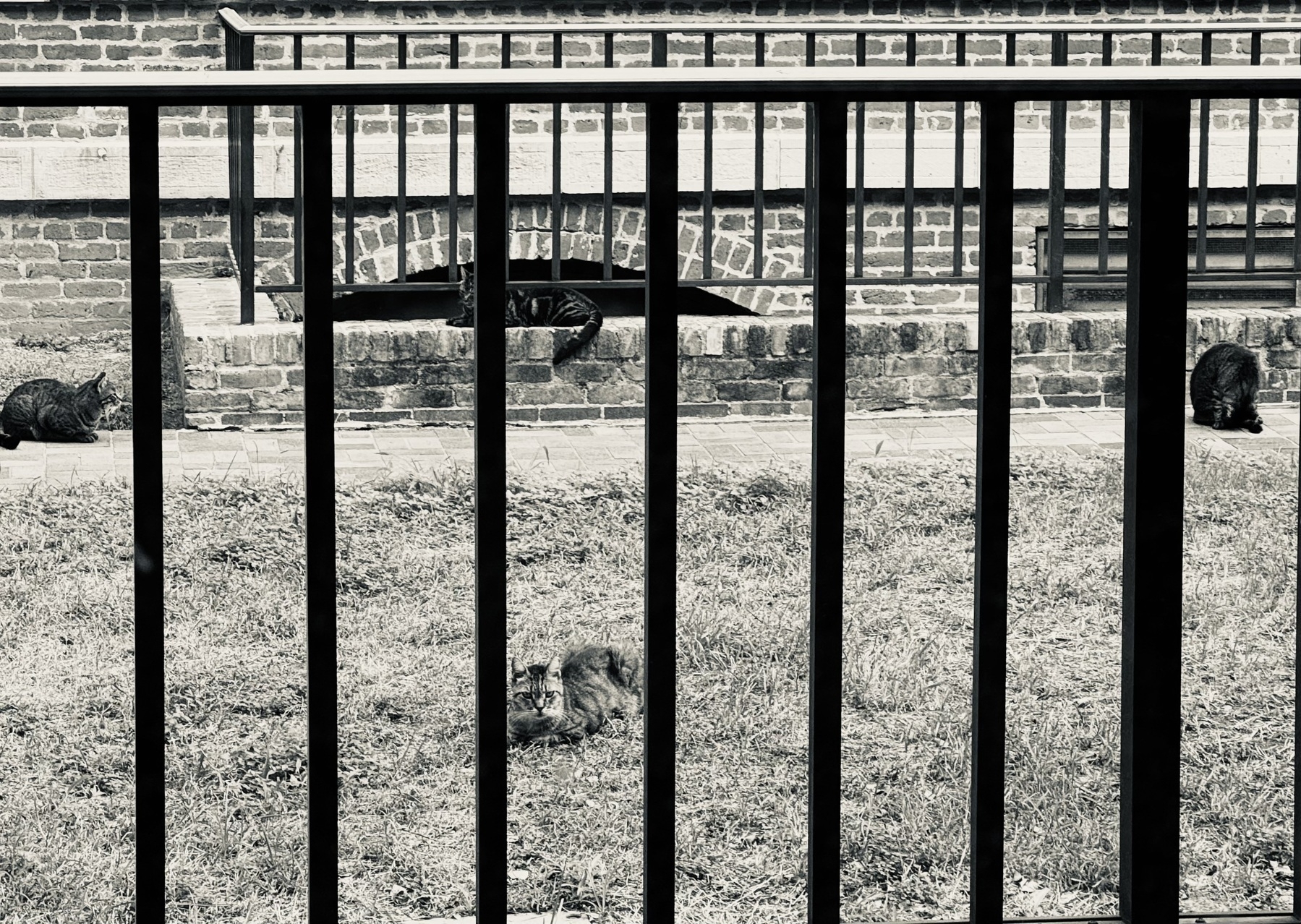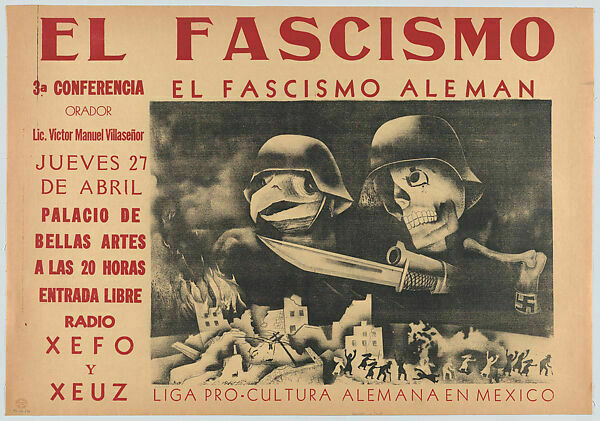Real talk:
- The best version of Rhapsody in Blue is the arrangement for piano, especially as played by Gershwin himself.
- The best version of Appalachian Spring is the original 13-instrument score, written as a ballet for the Martha Graham Dance Company.
Sometimes less really is more.

Currently reading: Passions of the Soul by Rowan Williams. This book is exactly what I need right now. 📚
Ove at the Hog Blog, I wrote about how Montesquieu teaches us the value of triangulation. (That may sound somewhat forbidding, but I promise, it’s an accessible post.)
The primary work of the Cardozo Kindersley Workshop is letter cutting in stone, and you couldn’t find a better example than this:

You can pursue a three-year apprenticeship at the Workshop, and I am greatly tempted to apply.
Stone carving by the Cardozo Kindersley Workshop for Clare College, Cambridge.

TIL (from John McWhorter) that long ago the opposite of business or busyness was busiless.
And little by little I began to wake up to the fact that I am, like everyone else in the academic humanities, really just scraping by in a ghost-career, a vestige of an older order that no one has yet worked up the courage to put out of its misery, but that really cannot continue to fulfill its purported function of shaping well-rounded citizens, when it is so fully subordinated to the primary function of the 21st-century university, which is, namely, fundraising.
“Content Creator” is a title that inadvertently tells on itself. It’s a tacit admission that the nature of the “content“ is meaningless and it exists to fill space. Might as well call yourself “Stuff Maker” or “Thing Doer.”
Two consecutive stories in my RSS feed. Turns out that if culture is being lost it’s also being found.

Another fascinating report on trends in American religion by Ruth Graham, the best religion reporter around. (Did I mention that she was my student? Only about a hundred times.)
Listening to the readings in church this morning, I couldn’t help thinking that the epistle might serve as a good meditation for … well, for everybody, but especially Christians who are caught up in the raging fevers of today’s American politics:
Who is wise and understanding among you? By his good conduct let him show his works in the meekness of wisdom. But if you have bitter jealousy and selfish ambition in your hearts, do not boast and be false to the truth. This is not the wisdom that comes down from above, but is earthly, unspiritual, demonic. For where jealousy and selfish ambition exist, there will be disorder and every vile practice. But the wisdom from above is first pure, then peaceable, gentle, open to reason, full of mercy and good fruits, impartial and sincere. And a harvest of righteousness is sown in peace by those who make peace.






